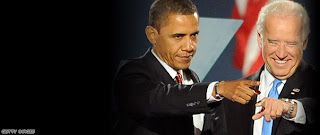Change for a ten? -by guest writer D.C. Leung
That was what happened to me, on a Sunday evening after dinner in downtown. Autumn was just starting to settle into the city, and the wind started to carry with it the chill of the coming winter. Jason, one of my brother's friends, decided to give all seven of us dining together $10 each to place in our wallets and to give away when the time felt right- perhaps when we have all but forgotten about this task.
My initial reaction, was 'what! Where would I find someone to give this to? Do I have to do it now? What if I forgot? What if I lost it? What if I accidentally spent this ten dollar bill at Starbucks?'. Honestly, it felt like a burden, a homework assignment almost, a task to check off my list as quickly as possible so that I could get on with it.
Not surprisingly, as soon as I stepped out onto the streets of the city, I started to notice how many homeless we have in our city. In the back of my mind, like most Vancouverites, I always knew they were there. I see them everyday as I head off to work. And like most people, I try not to notice their haggard faces and twisted bodies in their raggedly coats as they are begging for change or digging through the trash for pop cans. Or when we do notice, I don't really think about them. I realized that I just think at them. I used to just assume that I thought about them, when in actuality I just replay the headlines spewed by the media- headlines such as: why can't they just 'get a job', what is the situation with our mental health program, or how will our city 'fix this problem', and what will Vancouver be viewed as by the world in the 2010 games in the way we treat our homeless.
But carrying, this burden of a task in my pocket, started to make me think about these people as people. Ten dollars will definitely not change their circumstances, at most it will buy them a hot meal. But this money also represented love from another human being. I began to wonder how they would feel to know that strangers still cared about them even if it feels like society has pushed them onto its fringes wishing they would just step a bit beyond it and fade into oblivion.
The next day, as I walked, I could still feel it weighing me down on one side. How was I suppose to decide who "deserves" this money the most? Would I give it to someone who has mental illness and has been outcast by society? Or would I give it to someone struggling to make a living on collecting bottles because of their life circumstances that put them there on the streets? How would I be able to decide which unfortunate person could should be the fortunate one?
Honestly, I was a little resentful that week I had the money in my pocket. What kind of task was this to give someone anyway? I didn't know how I would feel about choosing who gets something and who will go another day feeling that nobody cared for them. But after a few days, I had forgotten about my task, and the money just sat there in my wallet, with it's corners folded down so that I could demarcate it's specialness.
A week had gone by and I had completely forgotten about this money, just as Jason had said we would. It was another crisp and chilly Sunday night in the city. As I walked quickly from the Skytrain towards Metrotown to meet a friend, I walked past a shape of a beggar huddled on the side of the corridor. I remember then after I had past him quite hurriedly that the ten dollar was still in my pocket. I turned back around and walked towards him, and as I did I noticed that he had a huge humpback and he was trying to curl as tightly as he could into his filthy grey coat.
I went up to him and he looked up to say hi. His eyes had a light in them that took me by surprise. As he started talking, I realized that he was alot more optimistic than alot of the people I know who are fortunate enough to have family, friends and a home to go to at night. He started talking to him and he told me about his life before he got into his work accident... about how he had raised two children as a working man, and about how he had lived a full life already. He told me with pride in his eyes about how he proved the doctors wrong by being able to get up and walk again. After I gave him Jason's ten dollars, I thanked him for sharing his story with me, and I wished him good luck to which his response was, "thanks! I've always been lucky".
 Brian Scudamore is the Founder & CEO of 1-800-GOT-JUNK?, a Vancouver-based franchisor dubbed one of the fastest growing companies in North America.
Brian Scudamore is the Founder & CEO of 1-800-GOT-JUNK?, a Vancouver-based franchisor dubbed one of the fastest growing companies in North America.


